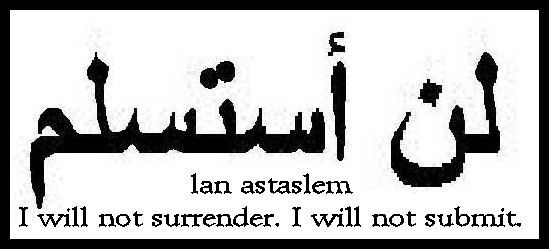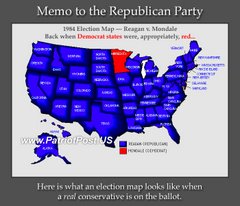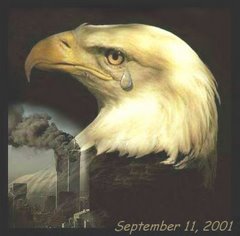Ad Hoc Cmte: Non-Paper
[Due to the use of OCR to extract quotes from scanned document images, there will be some spelling errors and a few Anglicized words will be Americanized. ]
The purpose of this "Non paper" is to stimulate a constructive debate on the content and the framework of major areas of vulnerability which for reasons of substance and/or of procedure suffer from protection gaps. Some of these areas are related to the contemporary manifestations of racism, ~ racial discrimination, xenophobia and related intolerance.The purpose of this "Non-paper" is also to invite concrete responses and recommendations based on its content.The Ambassador set forth the Non Paper's terms of reference.
The following listed phrases are critical because they are encoded to conceal the true intentions of the committee.
- Paragraph 199 of the Durban Declaration and Programme of Action that recommended to the Commission on Human Rights, now replaced by the Human Rights Council, to elaborate complementary intenational standards aimed at strengthening and updating international instruments against all forms of racism, racial discrimination, xenophobia and related intolerance.
- Decision 3/IO3 of the Human Rights Council that decides, in pursuance of decision and instruction of the 2001 World Conference against Racism, Racial Discrimination, Xenophobia and Related Intolerance to establish an Ad Hoc Committee of the Human Rights Council with the mandate to elaborate, as a matter of priority and necessity, complementary standards in the form of either a convention or additional protocol (s) to the International Convention on the Elimination of All Forms of Racism, racial Discrimination, Xenophobia and related Intolerance that will ill the existing gaps in the Convention and also provide new normative texts aimed at combating all forms of contemporary racism, including incitement to racial and religious hatred.
- Resolution 6/21 of the Human Rights Council on the elaboration of new international complementary standards to the International Convention on the Elimination of All Forms of Racial Discrimination.
- all forms of racism
- related intolerance
- incitement to racial and religious hatred
4. Emphasizes the urgent need to address the scourges of anti-Semitism, Christianophobia, and Islamophobia as contemporary forms of racism as well as racial and violent movements based on racism and discriminatory ideas directed at African, Arab, Christian, Jewish, Muslim and other communities;Islamophobia = racism!!!
The Ambassador directed the member states to keep in mind::
all views expressed and contributions made within the framework of the follow-up mechanisms of the Durban Declaration and Programme of Action, including:The Ambassador lists the following revelations from the two previous sessions.
- The survey of the five experts on the nature and the scope of substantive gaps, with regard to issues of content in the existing international instruments to combat racism, racial discrimination, xenophobia and related intolerance (A/HRC/4/W G.3/ 6) ;
- The document of the Committee on the Elimination of racial discrimination on possible measures to strengthen the implementation of the final observations by adopting new recommendations by updating its monitoring procedures (All-IRC/4/WG.3/7)
- The responses provided by the Committee ou the Elimination of racial discrimination to the questionnaire by the UN High Commissioner for Human Rights pursuant to decision PC.1/ 10 of the Preparatory Committee of the Durban Review Conference (A/CON'F.2l1/PC.2/CRP.5) including the relevant points of view made by the Members ofthe Committee on behalf ofthe latter; ~
- The Report of the 5th session of the Intergovernmental Working Group on the Effective implementation of the Durban Conference and Prcgrarnmc of Action (A/HCR/6/10) and all relevant recommendations and conclusions adopted by this Group since its creation, particularly those contained in document(AH.CR/AC.!/I/CRP.2);
- The discussions that took place during the first session of the Ad hoc Committee on complementary standards, held from 18 to 2l February 2008.
Of course, the revelations repeat certain code phrases.
- There is global collective agreement and commitment expressed during the 2001 World Conference against racism on the principle of claborating international complementary standards to strengthen and update the international instruments against all forms of racism, racial discrimination, xenophobia and related intolerance (para 199 of the Durban Programme of Action);
- However, no consensus was reached on how the specific form of/manner of giving concrete expression to this commiuncnt in priciple;
- We must also bear in mind the ensuing debate on the links between articles 19 and 20 of the International Covenant on civil and political rights and the expert meeting of 2 and 3 October 2008, whereafter it was reiterated that the fundamental right of freedom of expression is compatible with the prohibition of any call for national, racial or religious hatred which constitutes incitement to discrimination, hostility and violence;
- It is thus imperative to reach the largest possible agreement, through the Ad hoc Committee on complementary standards, on concrete ways and means to implement the commitment in principle made: during the 2001 World Conference against racism.
- The approach suggested to achieve this goal is to stimulate, in a positive and inclusive spirit, concrete proposals on the fields and themes laid out in the "Non paper" for which complementary standardized provisions or other measures designed to fill protection gaps, are necessary.
- all forms of racism
- related intolerance
- the fundamental right of freedom of expression is compatible with the prohibition of any call for national, racial or religious hatred which constitutes incitement to discrimination, hostility and violence
The Non-Paper begins with a listing of its Purpose, scope and parameters:
Once again, the code phrases rear their ugly heads.
- Implementing paragraph 199 of the Programme of Action of the World Conference against racism, racial discrimination, xenophobia and related intolerance, in which the Conference "Rec0Recommends that the Commission on Human Rights prepare complementary international standards
- to strengthen and update international instruments against racism, racial discrimination, xenophobia and related intolerance in all their aspects", as well as the relevant Human Rights Council resolutions, in particular decision 3/103 .
- The need to enhance efforts to counter contemporary and emerging forms of manifestations of racism, racial discrimination, xenophobia and related intolerance.
- The need to strengthen the monitoring procedures of the Committee on the Elimination of Racial Discrimination with a view to enable it to undertake the responsibilities entrusted to it in a more effective manner.
- The need to address double or multiple discrimination a continuing source of concern, as it affects certain individuals and groups, in particular gender-related racial discrimination and double discrimination on the grounds of race and religion.
- The imperative to ensure that measures to combat terrorism respect the fundamental principles and the universally recognized standards of international law, international human rights law and international humanitarian Law.
- The urgency of addressing racial profiling and eliminating it as a pervasive form of discrimination.
- The need for uniform and consistent application of the law at the national and international levels to ensure the effectiveness of international efforts to counter racism and racial discrimination.
- The need to recognize that The prohibition of the dissemination of all ideas based upon racial superiority or hatred and the prohibition of incitement to national, racial -· or religious hatred are compatible with the freedom of opinion and expression.
- The principle of regarding provocative portrayals of objects of religious veneration as a malicious violation of the spirit of tolerance which must also be a feature of democratic society.
- The need to re-emphasize that the prohibition of publication of material with the aim of protecting the rights of others and against seriously or gratuitously offensive attacks on matters regarded as sacred by the followers of any religion is a legitimate State objective.
- The need for national and international law to provide adequate legal responses to propaganda of a racist and xenophobia nature committed through computer systems.
- The need to follow the growing trend in many States to include, in their criminal I legislation, offenses in which religious motives are an aggravating factor.
- related intolerance = Islamophobia = any criticism of Islam.
- contemporary and emerging forms of manifestations of racism = Islamophobia = any criticism of Islam.
- measures to combat terrorism respect the fundamental principles and the universally recognized standards of intemational law, international human rights law and international humanitarian Law. This is a direct attack on surveillance of young Muslim males, such as the "magnificent 19" and other perpetrators of mass casualty attacks. Suspicion of Muslims = "racial profiling":.
- racial profiling
- The need to recognize that The prohibition of the dissemination of all ideas based upon racial superiority or hatred and the prohibition of incitement to national, racial -· or religious hatred are compatible with the freedom of opinion and expression. A repetition of the egregious attack upon free speech. The reference is to the Danish Cartoons and Fitna.
- provocative portrayals of objects of religious veneration as a malicious violation of the spirit of tolerance This is another reference to the Danish Cartoons.
- The need to re-emphasize that the prohibition of publication of material with the aim of protecting the rights of others and against seriously or gratuitously offensive attacks on matters regarded as sacred by the followers of any religion is a legitimate State objective. Refer to the quotes from Reliance of the Traveller in the initial post of this series.
- propaganda of a racist and xenophobia nature committed through computer systems. This is an attack upon blog posts and web sites which expose Islam's damnable doctrines.
3- Terrorism, racial discrimination and racial profiling:Who practices terrorism? Are the majority of terror attacks perpetrated by little old ladies from Iceland? Terrorism is an intrinsic sacrament of Islam, established as such by 3:151, 8:12., 8:60, 33:26, 59:2 & 59:13. When you hear hoof beats, they probably come from horses, not from unicorns. Profiling according to current trends in the identity of perpetrators is common sense. Islam is acting through the UN to disarm us.
- A definition of racial profiling, prioritizing human rights protection, could be elaborated and agreed upon.
- States must ensure that measures to combat terrorism do not discriminate, in purpose or effect on ·grounds of race, colour, descent or national or ethnic origin, as well as on religious grounds, bearing in mind in this context the intersectionality between racial and religious discrimination.
- Profiling based on stereotypes founded on grounds of discrimination prohibited by international law, including on racial, ethnic and/or religious grounds must be prohibited by law.
The fifth listed theme gets down to detail.
5- Incitement to racial, national and religious hatredThe listed item under sub section c would appear to be straightforward. It is not. Muslims, liars, lawyers and U.N. Bureaucrats do not use the English language to communicate, they use it to deceive! In evidence whereof I cite the egregious remarks of the Secretary General on the subject of Fitna, the short documentary by Girt Wielders.
- There is a need for further clarifying and reinforcing at the international level existing obligations on the eradication of all incitement to hatred and ' discrimination in any form and to prohibit by law, propaganda for war and advocacy of national, racial or religious hatred that constitutes incitement to discrimination, hostility or violence.
- In this context, complementary standards to be developed should observe the following parameters:
- Article 4 of ICERD shall be extended to the crime of incitement to racial hatred covering offenses motivated by religious hatred against immigrant communities.
- The protection provided shall extend to all individuals and groups within the jurisdiction of the State Party.
- The prohibitions shall equally cover acts committed by any individual, group or organization, including political and media organizations as well as by national or local public authorities.
- The provisions shall apply to any act which, in purpose or effect, incites discrimination, hostility or violence.
- In order to achieve consistent and uniform application and maximize protection for actual or potential victims, any doubt as to the existence of a causal link between an act of incitement and the likelihood of a violation, or the threshold required for reaching such a determination, shall be interpreted in a consistent and coherent manner at the national and international levels so as to ensure appropriate protection of the concerned individuals or groups.
- Addressing acts constituting incitement shall apply whether such acts have aims which are internal or external to the State concerned.
- Requisite standards would explicitly not prohibit advocacy of the sovereign right to self-defence or the right of peoples to self-determination and independence in accordance with the Charter of the United Nations.
- Requisite complementary standards shall include the prohibition of publication of material that direct seriously offensive attacks on matters regarded by followers of any religion or belief as sacred or inherent to their dignity as human beings, with the aim of protecting them against such attacks.
- In line with the above parameters, States' general obligations would include:
- Undertaking to promulgate, where they do not exist, a specific legislation prohibiting any propaganda for war and any advocacy of national, racial or religious hatred that constitutes incitement to discrimination, hostility or violence.
- Asserting, in the relevant specific legislation, that such propaganda and advocacy are contrary to public policy.
- Providing for appropriate sanction, including of a criminal nature, in case of violation.
Reuters quotes U.N. Secretary General Ban Ki-moon about Fitna:
“There is no justification for hate speech or incitement to violence,” Ban said in a statement. “The right of free expression is not at stake here.”
Fitna does not incite violence, it documents incitement contained in the Qur'an and propagated by Imams in their Mosques
The program of the Ad Hoc Committee runs parallel to the programs of the General Assembly and Human Rights Council in their resolutions combating "defamation of religion" and that of the Durban II review conference. Those programs are documented in detail and their egregious hypocrisy exposed and documented in the following listed blog posts..
- You’ve Been Mooned!
- U.N. Bans Criticism of Islam: Pretext.
- United Nations Ban Criticism of Islam
- Defamation of Religions Resolution Revised
- UN Renews Censorship Demand
- UN Resolutions Revisited: Defamation of Religions
- Durban II: Egregious Arrogance Part 1
- Durban II: Egregious Arrogance Part 2
- Durban II: Egregious Arrogance Part 3
- Durban II: Egregious Arrogance Part 4
- Durban II: Egregious Arrogance Part 5
- Durban II: Egregious Arrogance Part 6
- Durban II: Egregious Arrogance Part 7











































|